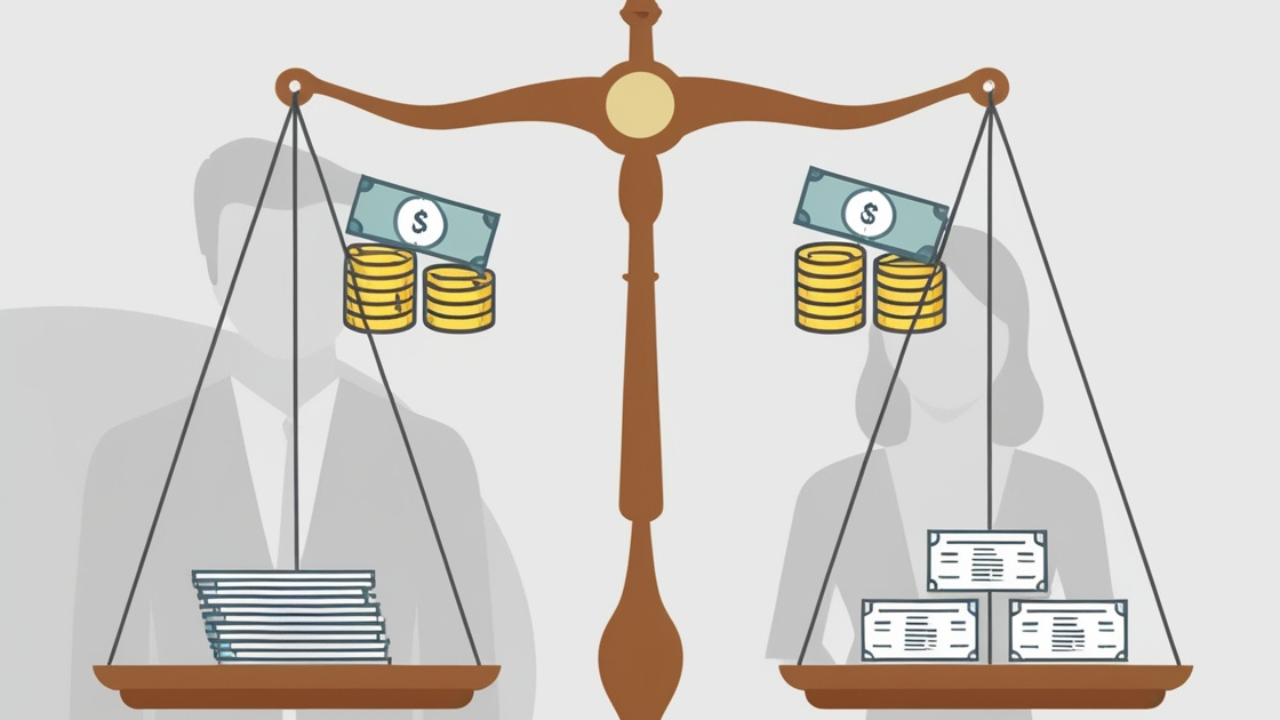Divorce can be financially overwhelming, especially when one spouse controls most of the assets. In Illinois, there are specific situations where the Court might order your spouse to pay your attorney fees, primarily due to financial disparity or misconduct. Understanding these scenarios can help you navigate your divorce more confidently.
Financial Disparity: When Income Inequality Affects Legal Representation
A significant financial disparity between spouses is one of the most common reasons the Court might order your spouse to pay your attorney fees. Illinois courts aim to ensure both parties have fair access to legal representation. This is often referred to as “leveling the playing field.” The Court may intervene to do so if your spouse has a substantially higher income or controls most of the marital assets.
Section 508(a) of the Illinois Marriage and Dissolution of Marriage Act allows the Court to award attorney fees when one spouse cannot afford them due to financial disparity. This is often referred to as a contribution to attorney fees. The Court evaluates factors such as each spouse’s income, property, and financial needs before making a decision.
- Example: If you’re a stay-at-home parent with no income, and your spouse has a high salary, the Court might order your spouse to pay your legal fees to ensure you have proper representation.
Misconduct: When Bad Behavior Leads to Paying Attorney Fees
In addition to financial disparity, misconduct by your spouse during the divorce can also result in the court ordering them to pay your attorney fees. Illinois courts do not tolerate behavior that unnecessarily prolongs the divorce process or violates Court orders.
Contempt of Court: If your spouse is found in contempt for violating Court orders—such as failing to disclose financial information, not adhering to visitation schedules, or hiding assets—the Court may order them to cover your legal fees associated with enforcing these orders.
Sanctions for Frivolous Motions: Courts may impose sanctions, including the payment of attorney fees if your spouse engages in litigation tactics designed to delay proceedings or increase costs unnecessarily.
- Example: If your spouse repeatedly files baseless motions to delay the divorce, the Court could order them to pay your attorney fees as a sanction, or penalty, for their misconduct.
How the Court Decides on Attorney Fees
When deciding whether one spouse should pay the other’s attorney fees, the Court considers several key factors:
- Income and Assets: The Court examines each spouse’s financial situation, including income, assets, and liabilities, to determine if there’s a significant disparity that warrants fee contributions.
- Behavior During Divorce: The Court reviews each spouse’s conduct throughout the divorce, particularly any actions that have unnecessarily complicated or prolonged the process.
- The Need for Fair Representation: The Court’s priority is ensuring that both parties have fair access to legal representation, which is vital for a just outcome.
Practical Steps You Can Take
If you believe your spouse should be responsible for your attorney fees, consider these steps to strengthen your case:
- Document Financial Disparity: Keep detailed records of your financial situation, including evidence of your spouse’s control over marital assets.
- Track Misconduct: Document any behavior by your spouse that violates Court orders or unnecessarily increases legal costs.
- Consult Your Attorney: Discuss your situation with your attorney, who can help you file a petition for attorney fees and present a strong case to the Court.
Related Articles
- Check out our Comprehensive Guide to Attorney Fees in Illinois Divorce Cases and learn more.
- Learn more about managing legal fees during a divorce, explore our article on How to Manage Divorce Attorney Fees.
Concerned About Legal Fees? We’re Here to Help.
Navigating a divorce is challenging, especially when financial disparities or your spouse’s misconduct complicate the process. Understanding when your spouse might be required to pay your attorney fees can provide some relief. At Anderson Boback & Marshall, we’re committed to helping you protect your rights and secure the legal representation you need. Contact us to discuss your case and explore your options.
FAQs Related to When Your Spouse Could Pay Your Attorney Fees
Can my spouse be ordered to pay my attorney fees in Illinois?
Yes. In Illinois, the court can order your spouse to pay your attorney fees if there’s a significant financial disparity. The court may also order payment if your spouse engages in misconduct, such as violating court orders or filing frivolous motions. This helps ensure both parties have fair access to legal representation.
What qualifies as financial disparity in Illinois divorce cases?
Financial disparity occurs when one spouse has significantly more income or control over marital assets than the other. The Court may order the wealthier spouse to pay a portion of the other spouse’s attorney fees to level the playing field.
What types of misconduct can lead to my spouse paying my attorney fees?
The court may order your spouse to pay your attorney fees if they violate court orders, such as by ignoring visitation schedules. They may also be required to pay if they use litigation tactics that cause unnecessary delays. These actions can include obstructing legal proceedings or purposely prolonging the case.
How does the Court decide if my spouse should pay my attorney fees?
The Court considers factors such as each spouse’s income, assets, and behavior during the divorce. The goal is to ensure fair representation for both parties, particularly when there is financial disparity or misconduct.
What should I do if I think my spouse should pay my attorney fees?
To strengthen your case, document any financial disparities and your spouse’s misconduct. Discuss these issues with your attorney, who can help you file a petition for attorney fees in Court.















